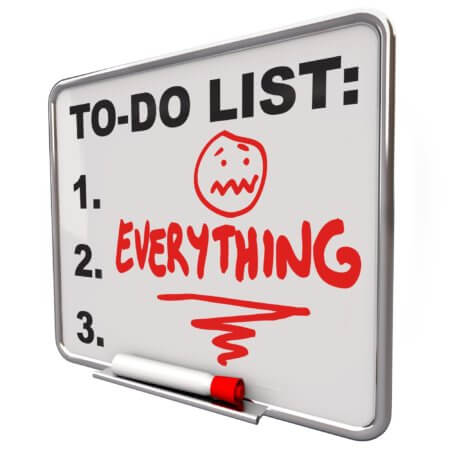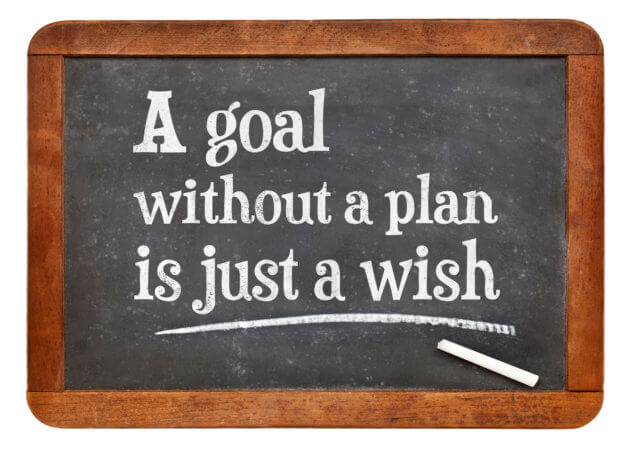School and life can be a lot easier if you develop a study plan.
Do you find yourself studying in bits and pieces of time, such as in the car circle, waiting for your children to get out of school?
Are you getting overwhelmed by all you need to do and cannot figure out how to do it all?
You are early in your academic career and probably feeling a bit overwhelmed. Are you wondering if you made a good choice? I would guess that you probably did. Remember, if you have worked a few years and you survived the enrollment process, you can do this. If you are a parent, then think about the times that you faced situations that were a lot scarier than a textbook. You can do this. As Henry Kissinger once said, “A diamond is a chunk of coal that did well under pressure.” Think about the diamond, not the coal. If you develop a study plan and follow it, you will be a diamond, not the lump of coal.

You are settling down to study. Now what?
I strongly recommend that the first thing you do is make a plan. This plan should include your personal things to do as well as be a study plan. Give yourself some element of structure. Students, in general, tend to accomplish more when they have an idea of what they need to do. Haphazardly moving from one topic to another can work for some students, but not for most.
1. Set a schedule for a week
Think about all the things you have to do during the week. Put them on your calendar schedule. What are the absolutes, such as work hours, that cannot be changed, at least, not easily? Put them on the schedule. What can be rescheduled if necessary? See what blocks of time you might have, such as sitting in the car circle waiting to pick up your child after school, or waiting in the doctor’s office. You can review flashcards or read or even draft a written assignment during those times. Learning to value the time you have is an important factor in your plan and your ability to succeed in school. If you develop your plan to take advantage of your day, you will find you get more accomplished.
Have you ever lost points on an assignment because you forgot to do something?
My assignment checklist can help you remember the details.
Check it out!
2. Decide what do you want to accomplish.

What do you need to accomplish? Do you have reading you need to do? What do you need to read and how much of that can you do AND still understand what you are reading? You really should decide your goal for the activity prior to starting the activity. Do you want to find a topic for a research paper? Do you want to understand one of the math problems?
Don’t start a study session with the idea that you are going to “get a lot done”. Identify and list what that “lot” means.
I will discuss reading later, but I do not recommend that you read past the point that you have no idea what you are reading. Plan on reading a section and plan to read the material to understand it, not just to say you read X pages.
I can hear the comments now: “If I do that, I will not finish the reading.” True, but you will be wasting your time if you read the whole thing and have no idea what you read. If you read to understand at least some of the material, you have a better chance of understanding more of it later.
What is the point of reading material that you do not understand? If you continue to look at the words on a page without understanding their meaning, you will simply need to take time later to reread the words. Why waste time reading what does not make sense?
Write some questions, ask your instructor or a classmate for clarification and read the material when you have a better chance of understanding this. You can even develop your study plan to account for reviews of the material you have, or have not, read.
3. Identify the assignments you have.
Do you have a paper to start? Plan how you will approach that. You will need time to research a topic, find material for your topic and begin the writing process. You should not do all of that in one sitting. Most new students need time to think about their papers.
If you have some math for homework, what can you do with that? How much can you accomplish in the time you have?
If you have several things you need to accomplish, take some time to think about your strategy. Will you try to do a little work on everything, or work on one major item? The optimal decision will depend on the time you have and the work that needs to be done. Many students find that they do better with several short study sessions and covering one topic than trying to do everything and not really focusing on one topic. Again, there are multiple variables in this and you are the only one who can decide what works best for you. You also are not committed to studying this way for the rest of your academic career. Change your plan as necessary.

4. The study plan is important.
If you decide to work on multiple topics, decide ahead of time how much time you will devote to each topic. Maybe you will want to read one chapter in your textbook and then move to ten math problems. You might want to consider setting a timer. Realize that, if you get “on a roll”, you can decide to stay on that task. If something takes longer than you expected, or, better yet, less time than you expected, you can develop your study plan to do the other work at some future date or help you get ahead of your plan.
Have you ever lost points on an assignment because you forgot to do something?
My assignment checklist can help you remember the details.
Check it out! It is FREE!!!!
5 .Take notes on what you have accomplished.
This serves two purposes. One important purpose is to allow you to realize how much you have accomplished. The other purpose is to note how long a particular task takes you. You should start seeing a bit of a pattern after a few study sessions. The patterns you see can help you arrange your tasks so that you will be most productive. That is what you want, isn’t it?
6. Make study behaviors a habit not exceptions to your day
If you set aside specific times to work on your studies, and honor those commitments just as you would a doctor’s appointment or an appointment with someone about your work or another life issue, you will find you will get more done. These sessions do not have to be very long, but they should be consistent and they should be regular. You will get more done if you are consistent with 30 minutes a day than trying to find two hours “somewhere” in a week. If you would like to know more about making, or breaking, habits, you might find one of my blogs on habits useful.
A Study Plan is important and necessary if you want to succeed
Maybe you are someone who does not want a plan or a schedule because you think that prevents you from going with the flow and taking advantage of situations as they occur. In actuality, having a plan allows you more freedom, because you know what free time you have and when you can move things around to deal with the unexpected. Creating a plan is not that difficult; here are a few similar steps suggested by Stetson University https://www.stetson.edu/administration/academic-success/media/STUDY%20SCHEDULE.pdf I am not surprised that Stetson mentions many of the issues that I have discussed.
If you found this helpful, please share it with someone you think would also find it useful. I would appreciate it. Your friend might appreciate it too.
I have Facebook group. It is a private group with the goal of creating a safe place for adult students to get support and ask questions. I have ideas for things I might do in the future, but I will be guided by the desires of the group members. Please check it out. I would hope you would like to join and help me build the group into something useful. If you are already in the group, thank you. It is small, but that means you can ask questions and get more personal feedback.
Back to School: Supporting adults earning college degrees
Are you interested in APA or academic writing help? If so, hit reply and let me know what kind of help you need.
If there is something you would like me to discuss, or a question about college or study tips, hit that reply button and ask me. Let me know what information you would like to help you get closer to your academic goal. I may not know the answer, but I just might have the information you want and need.
Remember that you are supported, and you can do this!
Feel free to contact me at Valerie@Olderstudentscanleanrnnewskills.com
Until next week,
Have you ever lost points on an assignment because you forgot to do something?
My assignment checklist can help you remember the details.
Check it out!
updated 4 September 2024